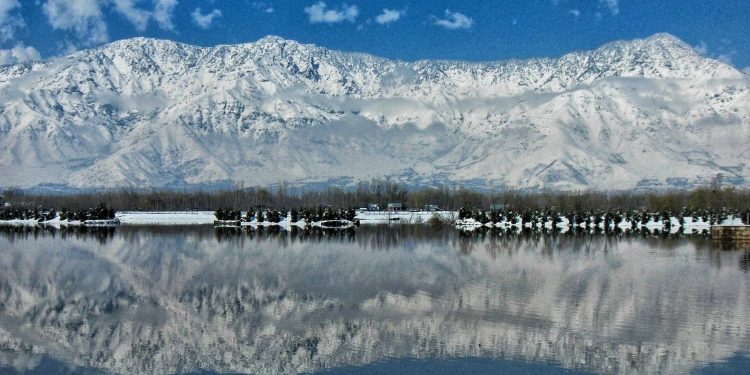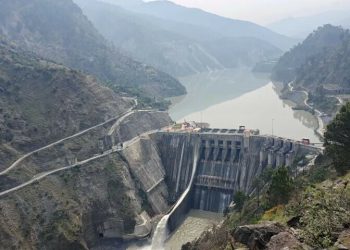Srinagar: In Indian illegally occupied Jammu and Kashmir (IIOJK), the Indian paramilitary Central Reserve Police Force (CRPF) is taking over hundreds of kanals of land within a protected conservation reserve in the ecologically fragile Zabarwan hills of Srinagar to establish a new military base.
According to Kashmir Media Service, a meeting was held on June 24 last year between CRPF officials and the Srinagar district administration, following which 1,324 kanals of land were identified in Brein — a cluster of villages nestled in the Zabarwan range — for setting up a “Battalion Camping Site.”
Subsequently, on July 8, 2024, Kishore Kumar, Commandant of CRPF’s 79th Battalion, wrote to the Deputy Commissioner Srinagar seeking the revenue records of the land parcel “so that action for placing of indent shall be processed accordingly,” paving the way for construction of an approach road to the site.
Local residents, fearing displacement and the destruction of their livelihood resources, have approached the National Green Tribunal (NGT), a statutory body in India that deals with expeditious disposal of cases related to environmental protection and other natural resources, warning that the move violates environmental laws and will devastate one of the last green belts around Srinagar. Environmentalists have cautioned that converting a designated “green zone” into a military complex would cause irreversible damage to the fragile Himalayan ecosystem.
In their petition, the residents of Brein revealed that over 50,000 trees are being marked for felling to clear the land for the base meant to house the CRPF’s 61st, 79th, 117th, and 132nd battalions. They have said that the IIOJK administration was facilitating the project despite legal restrictions on construction within the catchment area of Dachigam National Park, a protected conservation reserve under the Wildlife Protection Act (1972), National Forest Policy (1988), and Srinagar Master Plan–2035.
Lead petitioner Ghulam Mohiuddin Shah, representing 49 families from several localities scattered across the Zabarwan foothills, told the tribunal that the project would cause irreparable ecological harm. He shared photos showing large boulders marked with red paint — a prelude to extensive deforestation in the area overlooking Srinagar’s famed Mughal Gardens and Dal Lake.
Another petitioner, Mohammad Ramzan Hafiz, said the CRPF initially sought 124 kanals but later expanded its claim to 1,324 kanals. “The government can find land for the CRPF elsewhere. Why destroy forests and fragile ecosystems? If these policies continue, our heaven will turn into a hell,” he said.
The petition, scheduled for hearing on November 24, also points out that no seismological or environmental impact assessments were conducted prior to clearing the project.
Environmental activist Raja Muzaffar Bhat warned that the construction of a concrete military complex in such an ecologically sensitive zone would endanger wildlife and worsen the region’s vulnerability to climate change.
The Group of Concerned Citizens (GCC), a civil society organisation in IIOJK comprising former administrators and bureaucrats, has also urged the authorities to reconsider the decision. Manzoor Ahmad Tak, a retired conservator with the IIOJK Forest Department, stressed that the site lies within a legally designated “green zone,” and its conversion violates the Srinagar Master Plan. “Allowing this project would trigger an environmental disaster,” he said.
Environmental experts note that this move is part of a larger pattern as over one million Indian forces deployed across IIOJK have already illegally occupied thousands of kanals of land, including forest reserves, agricultural tracts, and private holdings, under the pretext of security installations. The Zabarwan land grab, they warn, reflects New Delhi’s ongoing militarization of the occupied territory at the cost of its ecology and the rights of its people.
-KMS



















